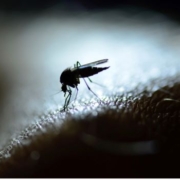An experimental monoclonal antibody developed at the U.S. National Institutes of Health (NIH) prevented malaria for up to nine months in volunteers exposed to the disease-causing parasite in a small trial, researchers reported on Aug. 11 in the New England Journal of Medicine.
Researchers from the Francis Crick Institute and the Latvian Institute of Organic Synthesis developed a new compound that blocks a step in the life cycle of the mosquito-borne parasite that causes malaria.
BioSpace reviews some recently published scientific studies, including researchers with the University of Colorado Anschutz Medical Campus releasing a new study calling attention to the emergence of mosquito-borne viral outbreaks in West Africa.
The World Health Organization said eradicating malaria is biologically feasible and a lofty aim, but the focus for now should be getting the funds, tools and political will to control the mosquito-borne disease.


 Biospace
Biospace